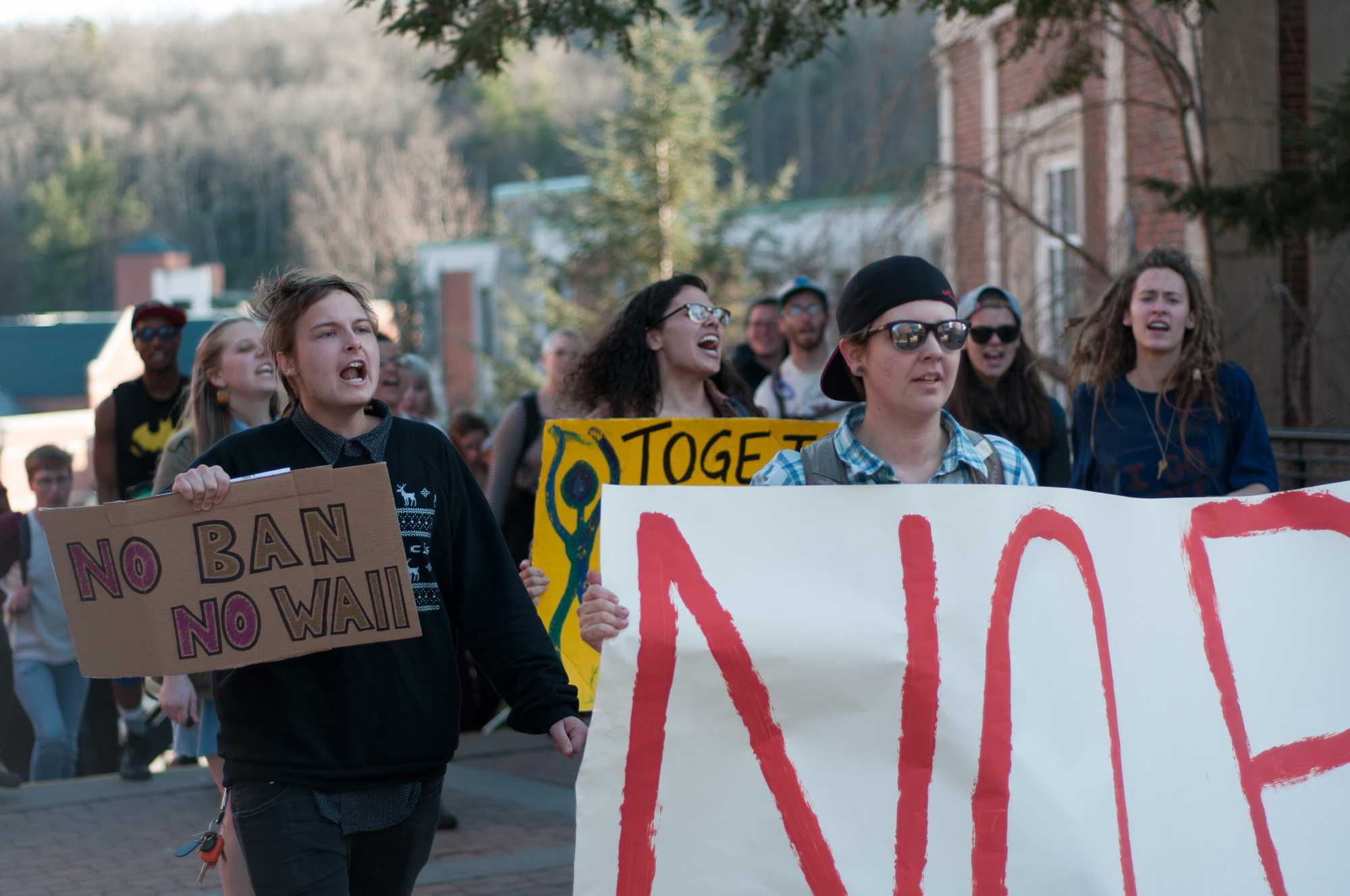With the passage of the free speech law that is stated to result in disciplinary actions against those that substantially interfere in the free speech of others on campus, professors are uncertain of the law’s effect but find the legislation as a whole unnecessary and potentially restrictive.
“I think it’s a solution in search of a problem,” Paul Gates, professor in the Department of Communication who specializes in law, said.
Gates also said that the law is unnecessary and puts the government in a bigger role over free speech on campus which he said could be restrictive.
Professor in the Department of History, Michael Behrent, said he agreed that free speech is important on campus, but shared Gates’ sentiment that the law is too restrictive.
“In the name of restoring free speech, the effect of this law could be a chilling effect,” Behrent said, “in the sense that it could discourage people from engaging in free speech because they fear that some people could interpret some of the things that they say deserving of punishment under this law.”
Gates and Behrent also said that the law seems to be biased towards a conservative viewpoint with its ties to the Goldwater Institute, a conservative think tank.
Gates went as far to say that this is the legislative version of the same thinking that caused the violence in Charlottesville.
“This is the result of those of a conservative viewpoint who believe they’re being suppressed, and it’s the same thinking that supported the trouble in Charlottesville,” Gates said. “They are saying that they’re reacting to their repression by the other side. This is the pushback against the perceived leftist attitude.”
Behrent said that he thought the law was a reaction to the perceived liberal bias on campus, something that he said is not entirely inaccurate.
“I think it’s a conservative bill trying not to seem conservative,” Behrent said.
At the same time, Behrent said that he does not think every single institution, such as the military, is perfectly politically neutral.
Behrent also said that while he sees this law as a form of anxiety surrounding leftist protest movements, that legislating in this way is potentially restrictive.
“It’s in the nature of free speech to generate certain kinds of problems,” Behrent said.
Regardless of his issues with the law, Behrent said that bill is difficult to condemn outright because he agrees with the ideal of having free speech on campus.
“I don’t disagree with people who want free speech on campus, and that does have to mean making sure that conservatives have their voice heard–I’m not a conservative–but free speech absolutely does need to do that, or otherwise it’s not free speech,” Behrent said.
Despite if this law does restrict free speech on campus, Behrent said that he does not think free speech is in danger.
“Repression of free speech usually doesn’t work,” Behrent said. “I think it’s important to remember that.”
Nicholas Williams, president of the Young Americans for Liberty group on campus, has a different perspective on the law.
“While this bill is not perfect, I think it is a step in the right direction,” Williams said. “Restore Campus Free Speech Act sets a standard for campus free speech policy and clears up ambiguity in University of North Carolina schools’ policies. Regardless of political partisanship, the constitutional notion of free speech is widely accepted, and I think with proper representation on the UNC Committee on Free Expression, the bill will reduce the barriers on free expression on campuses.”
Williams called the passage of the bill a win for free speech advocates who desire that universities be the centerpieces for free expression, ideological discourse and political exposure.
“Bigotry and hate should be combatted through debate, growth and unison, not through censorship,” Williams said.
Despite the ideal of providing free speech to all political viewpoints, Gates said that even if this repression of conservative thought exists, that restricting one side from the debate is not the method for handling it.
“Let various positions loose in the marketplace of ideas, and people will respond, and people will make the better choice,” Gates said. “You don’t get an opportunity if you slam the door on the marketplace by restricting certain people’s views, and I think that’s what this does.”
Story By: Ben Sessoms, Associate News Editor
Photo By: Matt Sloyer

